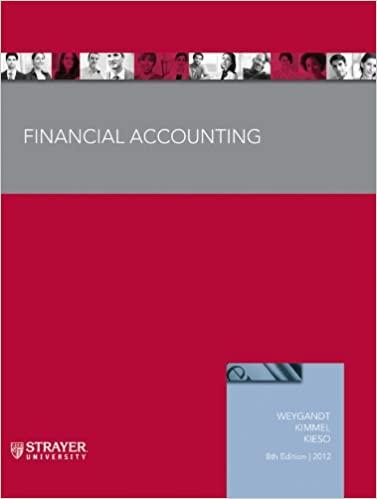Question
Consider the following dialog between Susan, a student studying a chapter on Money and the Banking System and Megan, her teaching assistant. SUSAN: I wanted
Consider the following dialog between Susan, a student studying a chapter on Money and the Banking System and Megan, her teaching assistant. SUSAN: I wanted to ask you about the too big to fail notion. What does it entail? I had a feeling that during the lecture our professor was criticizing big banks, but I have always thought that big banks are more reliable than small banks. My parents, for example, have always preferred a big bank operating at a national level over a small local bank. MEGAN: The fact that big financial institutions may create financial crises rather than help avoid them is counterintuitive, isn't it? You see, each bank is part of a national, even an international, banking system. In turn, the banking system is part of the broader financial system. If one of the system's components fails, it creates a domino effect, undermining the stability of the entire system. For example, a bank run will cause trouble for other banks that are owed money by the first bank. However, the impact of the failure of a financial institution depends on the size of the institution. For example, although the failure of a small community bank in Idaho would probably cause a lot of inconvenience for its depositors, the banking and financial system would quickly absorb the losses. However, the collapse of a national bank such as Bank of America or Citibank would cause chaos both nationally and internationally. Hence, fixing the breach in the system would require massive rescue efforts, typically in the form of taxpayer-funded bailouts. Moreover, investors would get a clear signal that the national economy was experiencing massive problems. Investors would quickly call in their funds, which would only make matters worse. In other words, although big and interconnected banks would reduce banking fees and offer a broader variety of services, they can threaten the entire system if they run into trouble. Now, tell me what term did the professor use to describe the risk associated with big banks? SUSAN: Indeed, it all makes sense. The professor used the term _______ (secific risk, required risk, normal risk, systemic risk) to describe the vulnerability of the financial system to the failure of a big bank. MEGAN: What is the name of the institution that supervises big banks nowadays? SUSAN: The professor told us that since 2010, _______ (the Dodd-Frank agency, the Federal Reserve, the American Internationl Group, the Treasury) supervises financial institutions that are believed to be systemically important.
Step by Step Solution
There are 3 Steps involved in it
Step: 1

Get Instant Access to Expert-Tailored Solutions
See step-by-step solutions with expert insights and AI powered tools for academic success
Step: 2

Step: 3

Ace Your Homework with AI
Get the answers you need in no time with our AI-driven, step-by-step assistance
Get Started


